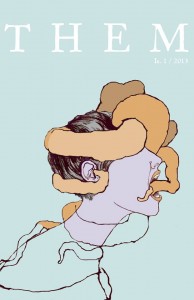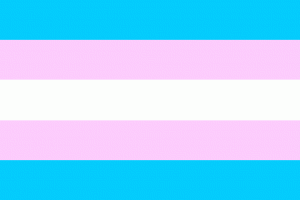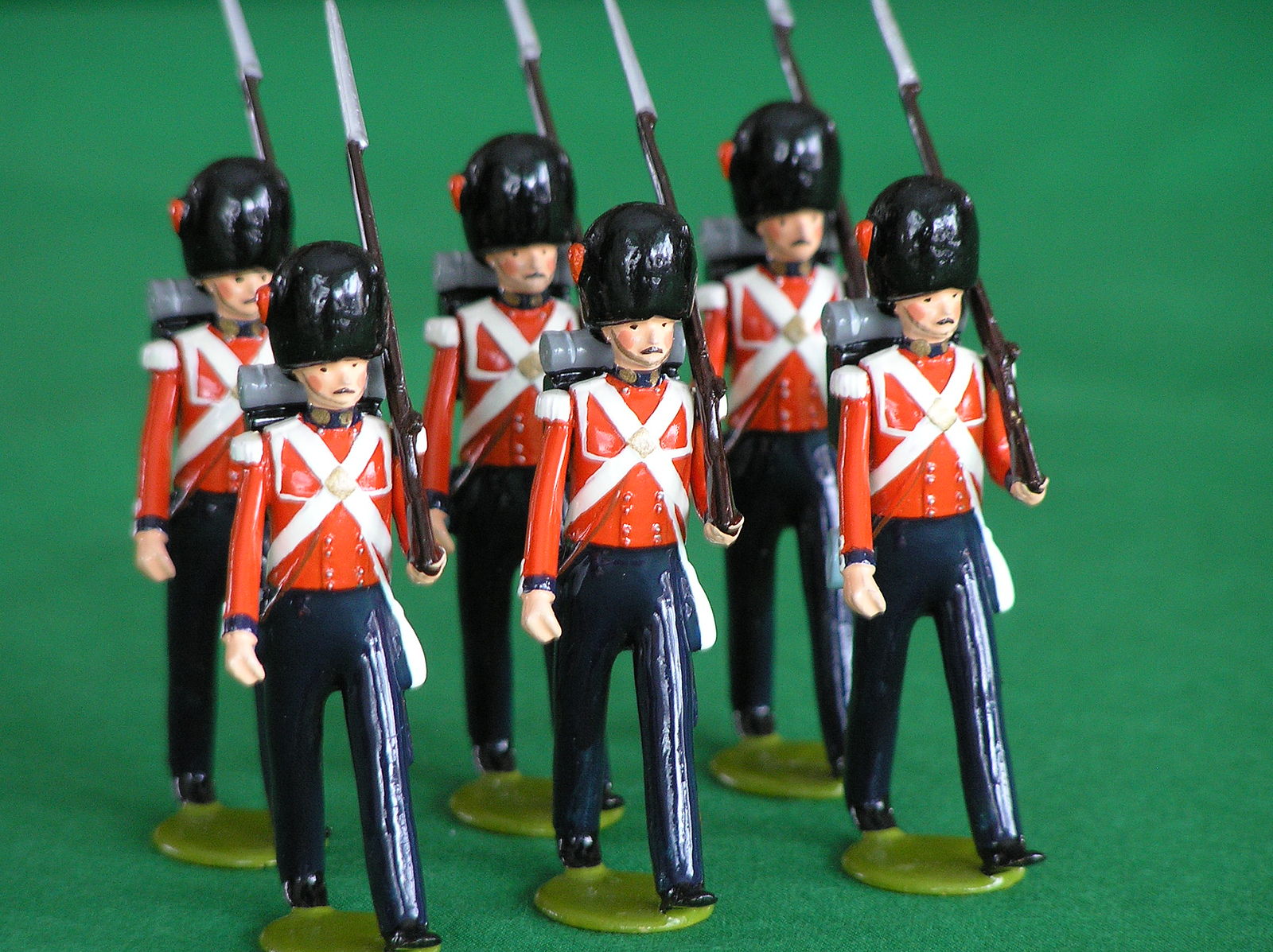This holiday season I am wondering all the deep things.
What is your favorite Rihanna song and why?
(honesty appreciated, but not a prereq.)
Regarding Free Speech, Community, and HTMLGIANT
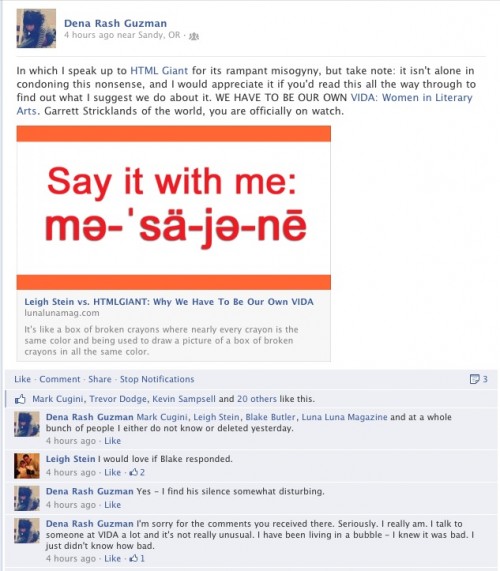
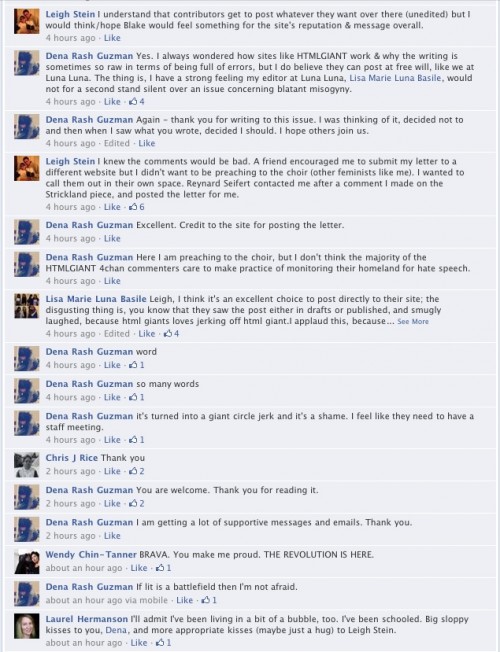
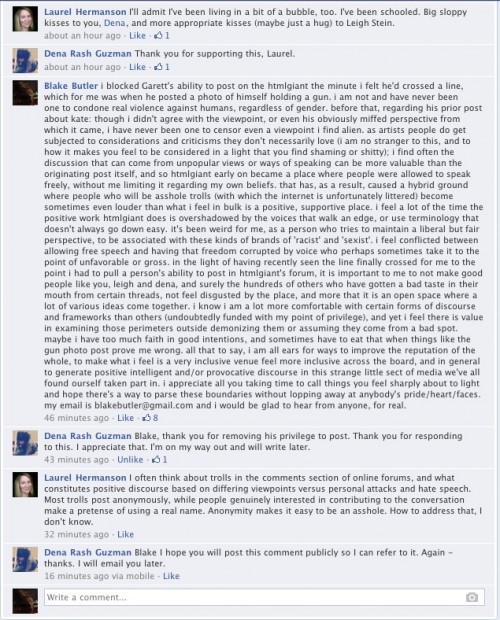
Please feel free to discuss below. Please act like a person.
Sunday Service: Lucy Tiven
like this
when I burnt my fingertip
it was because I wanted to turn the candle
into a tiny trashcan. because I don’t know
how to make people pay attention to me
without acting like a wastebin set on fire
outside the park
like people need something
for people to swerve around
and then video with their phone
like there is a voice inside you
that you actually can’t turn off
by arching your feet
the lamp I ordered from eBay
turned out to be a dollhouse lamp.
you have to order a tiny adaptor
to make it plug to a usual outlet. it sucks.
I still want to be a doll though
birds in the engine
I don’t feel that hopeless
Dropping my luggage
with reckless abandon
Isn’t it funny that there is a monk in the airport?
Everyone is quietly trying to take his picture
without giving themselves up
bio: Lucy Tiven is an MFA student at San Francisco State University and a contributing writer for The Fanzine. She is currently working on a chapbook about Mark Rothko for Plain Wrap and trying to get hired as a sales associate at Pet Food Express.
Get Ready for THEM: Stephen Michael McDowell Reports on Jos Charles’s New Magazine
When a new literary arts magazine comes along, it’s always a reason to celebrate. Jos Charles, Emerson Whitney, and Jamila Cornick have put together a critically ambivalent, aesthetically smart online magazine THEM (soon to be in print) that promotes the *trans values in us all, and it is awesome.
Stephen Michael McDowell, a writer loosely associated with the Alt Lit scene (as is Jos Charles), gives a 25-point report on Jos Charles’s new project THEM, Issue One, which was published online today (link provided below):
1. I have a very low tolerance for cold, and often cite any setting below 75 degrees Fahrenheit as potential “jacket weather”.
2. Despite widespread public knowledge of racially polar male and female authors and poets [something about me not being able to think of any openly queer or racially unspecific authors and poets, especially given] my experience.
3. Something about how modern dress does not preclude a person from being a person but can prevent a person from being informed of different genitals which can prevent a person being aware that different genitals exist.
4. Focusing on queer or trans* identity as a central theme in literature vs. focusing on economics as a central theme in literature vs. focusing on writing about writing as a central theme in literature vs. focusing on nothing in general as a central theme in literature.
5. In THEM Issue One the assigned gender of each contributor in this journal is shrouded in a way that, regardless of the piece’s overall focus, seems to render every character, voice, feeling, and basis for confusion “human” in a way that I like.
6. I developed pneumonia the week my junior high school P.E. class started practicing lacrosse. I was relieved I wouldn’t have to compete against people in lacrosse, but practiced at home in my bedroom because I liked the mechanics of the instruments that were used in the game. I felt profound disappointment when I got back two weeks later and they had moved on to volleyball.
7. In a climate where terms like “Experimental” and “Standard Procedure” seem wildly vague and frequently interchangeable it seems like enthusiasm and maybe “Recognizably Subversive” work are what readers’ readers are looking for to share with there friends. In this search, almost as if by accident, the still peripheral outpourings of the disenfranchised but not unfamiliar seem to easily go overlooked. I don’t know why this is, maybe something about quality, maybe something about affect and guilt, but this collection touches on a lot of subjects without intentionally straying from the easy-to-parse, which I think may give this publication a chance in the realm of alternative/internet literature at least.
8. I feel rigidly aware I’m writing in a mode I’m uncomfortable with because it seems like people are more receptive when I write this way.
9. This is a large collection (~100 pages of text). If I were approached and asked by a friend which pieces of this they should read, I would reluctantly point out one co-authored by a writer I’ve published, maybe three or four more besides, but the experience of reading this collection dans complètement left me on the brink of tears in a sort of dizzying empathy. So maybe just read all of it.
10.
““Trans*” is an umbrella term meant to include not just transgender identities, but any person who does not exclusively identify as the gender assigned at their birth. This often includes genderqueer, bigender, agender, genderfuck, and other gender-variant identities. Like with any umbrella term, the only way to know if “trans*” applies to someone is if they apply it to themselves.
THEM uses the word “trans*” in an attempt to make room in the old, reconcile, carve, and begin from where we can. That is to say “trans*” is not perfect and without limits; THEM adopts it as a strategy—contingently and consciously. If a more suitable term, less grounded in binarist western identity-politics emerges, THEM will be happy to abandon “trans*” and utilize another.
THEM is not the gender police. Authors and artists herein may not identify with “trans*” as a term, i.e. folks with cultural gender identities who reject its use. Likewise not all writing herein may be considered “trans* writing.” THEM is willingly confused by what does or doesn’t pass as trans* writing. THEM is critically ambivalent. THEM is happy to present conflicting manifestos.”
Seems sweet.
11. In my immediate family there is a constant struggle to reconcile racial and gender identity. One of my siblings has been in a long-term relationship with someone outside our family’s designated race and has seemed openly conscious of and tormented by this, despite the degree to which they seem compatible. Another sibling is in a “homosexual relationship” and hasn’t told our extended family, though they never attend family events without their partner. After nearly a decade of engaging exclusively in relationships with people of one racial designation, I recently started seeing people in other races and with non-conforming gender identities and have felt less confused by my impulses and more aware of what other people consider when looking for partners, and have felt the experience to be constantly epiphanic. Reading this journal has enhanced that feeling of epiphany for me, I feel.
12. Something I thought upon initially embarking on reading “THEM” was that the formatting and layout seemed lit-journal-typical in a way that made me uncomfortable. The discomfort, I realized, was grounded in my own tendency to try to design things contrary to how culturally normative magazines and journals have appeared in my experience. After thinking more about this, I realized the editors may have been trying to make the journal seem attractive to a wider audience than people who, in my mind, stereotypically fit into a “punk” aesthetic, due to that subculture appearing more welcoming to openly trans* people. I’m not sure what it is that I intuitively generalized but I don’t like it and think #10 renders it in a much higher resolution than my brain is willing to parse.
13. I’ve never had gay sex, whatever that means. Maybe I have. Whoa.
14. I didn’t know there was a trans flag. Now I do. http://castrobiscuit.com/wp-content/uploads/2012/10/trans-pride-flag.gif
15. Having a very difficult time coming up with 25 points. Earnestly considering flaking on all y’all tbqh.
16. Thought “LGTBQH” and kind of twisted my spine in an attempt to express a seemingly nondescript, possibly never before previously experienced emotion I could attempt to convey as “weakly entertained in a self-loathing humorous manner while very aware of growing feeling of hunger and mild pain in the testicles.”
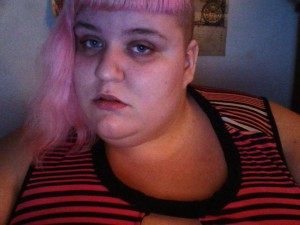
Writer Reba Overkill does not live up to their name in THEM, Issue One, instead they straight up kill it.
17. I feel aversion, generally to political activism. To some degree, I embarked on a career in literature because novels and poems have the ability to transcend—or, more accurately, in my view, diverge from—approaching politically controversial topics and unite people. It seems sweet to me that there are authors and poets spending their time writing from politically aware standpoints, but with less an “agenda” than to express and explore, in a way that’s non-standard with regard to what, in my view, is typically viewed as “literature”
18. “Satyricon (or Satyrica) is a Latin work of fiction in a mixture of prose and poetry (prosimetrum). It is believed to have been written by Gaius Petronius, though the manuscript tradition identifies the author as a certain Titus Petronius. As with the Metamorphoses of Apuleius, classical scholars often describe it as a “Roman novel”, without necessarily implying continuity with the modern literary form.
“The surviving portions of the text detail the misadventures of the narrator, Encolpius, and his lover, a handsome sixteen-year-old boy named Giton. Throughout the novel, Encolpius has a hard time keeping his lover faithful to him as he is constantly being enticed away by others. Encolpius’s friend Ascyltus (who seems to have previously been in a relationship with Encolpius) is another major character.
“It is one of the two most extensive witnesses to the Roman novel, the only other being fully extant Metamorphoses of Apuleius, which is quite different in style and plot. Satyricon is also extremely important evidence for the reconstruction of what everyday life must have been like for the lower classes during the early Roman Empire.”
—Wikipedia
I found this article about three years ago when google searching “first novel”. [Something about it having been published in the first century A.D.] [Something about 2,000 years passing since its first publication] [Something about high-profile LGBTQ public figures gaining mainstream popularity on television and the internet]
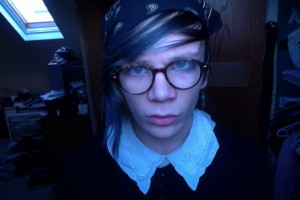
Codi Suzanne Oliver, whose writing is also included in the first issue of THEM, is another reason why THEM’s editorial staff should include contributors’ phone numbers.
19. I have a friend who dated a trans woman and stayed friends with her after they broke up. My friend told me that her friend began a long-term relationship with a man and still hasn’t told him she was once designated a boy because it just never came up in conversation.
20. This couple: http://www.dailymail.co.uk/news/article-2374296/Transgender-teen-lovebirds-pose-swimsuit-shoot-having-gender-reassignment-surgery.html
21. Have, over the course of writing this, returned to the idea of “us vs. them” but haven’t yet come to any conclusions about it.
22. I’ve felt consistently averse to the idea of trying to “sell” this journal. I was asked to write this and am writing it because I was asked to and felt interested in writing something that would appear on HTMLGiant and would promote a more diverse range of potential for writing, in general.
23. I feel shitty for making this “meta” instead of feeling as though I was capable of coherently summarizing my thoughts, strictly, on the journal itself.
24. I think viewing this collection not as “queer/trans* literature” but as “literature” will be the most beneficial way of perceiving it, if the reader is capable of dissociating from the intention of the publication.
25. Thank you for reading this.
You may read THEM, Issue One, free and online here: http://issuu.com/themlit/docs/them_draft_1.docx
December 13th, 2013 / 8:00 pm
The Strickland Dildo
Guest post by Emma Needleman
I.
The other day, I clicked a link to an essay called The Zambreno Doll, a prose poem by Garett Strickland. The essay—apparently inspired by the experience of Kate Zambreno unfriending him on Facebook—disgusted me. In it, Strickland accuses Zambreno of deliberately “occluding” him on the basis that he’s a white male, speculates that she needs to hatefucked by a real misogynist, and gleefully fantasizes about turning her into a doll.
Reading the piece infuriated me. I’m tired of seeing women I respect get treated like this. It made me so angry that I broke my New Year’s resolution to stop fighting with people on the Internet, and I left a series of comments calling Strickland a “dweeb” and a “loser.” I would like to take the opportunity to say that I stand by these statements. Later, I wrote longer comments calling attention to the gender dynamics of Strickland’s piece, and I also stand by these statements, although not to the same degree as my original assertions that he is a dweeb.
Garett wrote comments, too. They said things like:
“Ah yes right. Forgot I’m a man. Just a man. Not a person or a human or a life, but a man. Just a man. Way to put me in my place!”
“I just looked up the definition of misogyny to make sure. No, I don’t hate women. So I wouldn’t consider [my piece] misogynistic.”
“I find all this cultural obsession with gender objectionable to the point of boredom.”
“Rather than simply keep my mouth shut regarding my opinions—or ghettoizing those opinions to conversations where I can make certain I’m only being agreed with, a la Zambreno—I’ve decided to share them out of an obligation I feel toward radical openness.”
::: :::
Like Strickland, I’m writing this piece because of an obligation I feel towards radical openness. I don’t want to restrict my conversation to places where I know my opinions will be agreed with, like among Mr. Strickland’s ex-girlfriends. That’s why I wanted to write The Strickland Dildo. It’s an exploration of the cultural forces that enable things like The Zambreno Doll to exist.
II.
Garett Strickland looks exactly how I would expect him to. His author photo shows him slumped in a chair, holding a (fake?) gun and looking stoned. He looks like ninety percent of my male friends: scruffy hipsters who earnestly think that people want to hear about their taste in music, dudes who smoke weed all day, and insist that being 1/16 Native American means they’re not “really” white.
I Google him and instantly regret it. It’s exactly what he wants me to do.
::: :::
The evening after The Zambreno Doll is published, my doorbell rings. When I open it, I see that a small, brown package has appeared on the porch. Could it be? The Strickland dildo? The phallus itself?
I bring the package inside quickly. If it’s the dildo, I already know what I’m going to do with it: take mocking photos of it and post them online. I have a whole series planned out. First, I’ll get my prettiest girlfriends to hold it up and make a face like they’re going to be sick. Then I’ll put a little Santa hat on top of it. Finally, I’ll feed it to my neighbor’s dog.
I tear open the package but find no phallus. Insteadi, it’s a set of twelve toy soldiers, the old-fashioned metal kind. I’m disappointed. I didn’t ask for these. I wanted a doll, or its equivalent. Why should Garett get one and not me?
But I know why. Because he’s had it all along. Because he didn’t have to ask. Tears fill my eyes. This is confirmation of a terrible reality.
::: :::
Lately, I’ve been sitting in on an undergraduate class on 19th century German philosophy. The class begins with Kant and concludes with Nietzsche’s On The Genealogy of Morality. I like Nietzsche, maybe more than I care to admit. I certainly like him more than anyone else in the class, even though the other people in the class are all twenty-year-old boys, and twenty-year-old boys have historically been Nietzsche’s primary audience.
I like Nietzsche because he understands cruelty. He knows that we need to be cruel and that we need to know that we are cruel. If we don’t see the pain on the Other’s face, we will destroy ourselves. I believe this is true.
But I don’t think that this paradigm applies to Garett, who just wanted to “put Kate in her place”—to make her feel bad so he could feel powerful. He felt so entitled to that power that he became angry when she exercised even the tiniest bit of agency. He implied that she needed to be hurt, that she needed him to hurt her. That’s why I’m comfortable writing things like, “cry harder, dweebus” or “your dick is gross and bad.”
::: :::
After a few days, I take out the toy soldiers again. Maybe I can do something with them—give them to a thrift store or homeless shelter. I open the box and notice that the soldiers look different, somehow. I squint and lean closer. Suddenly, I realize what it is: each of them has a distinct and highly detailed face. How did I not see it before?
I pick one up and examine it. It’s Garett Strickland. I pick up another one. It’s Sigmund Freud. I pick up another one. It’s the kid from my writing workshop who only wrote stories about women getting murdered. I pick up another one. It’s the man who grabbed my ass the first time I rode the subway by myself.
By now, my heart is pounding. I check the rest of the soldiers and confirm: yes, I recognize all of them. Yes, yes, they’re all here. It’s time. It’s finally time. I know what I have to do.
I go into my bedroom and put on my hiking boots. Then I line up the metal soldiers in two neat rows and crush each one under my feet. Like I said before, I find this cultural obsession with masculinity objectionable to the point of boredom.


